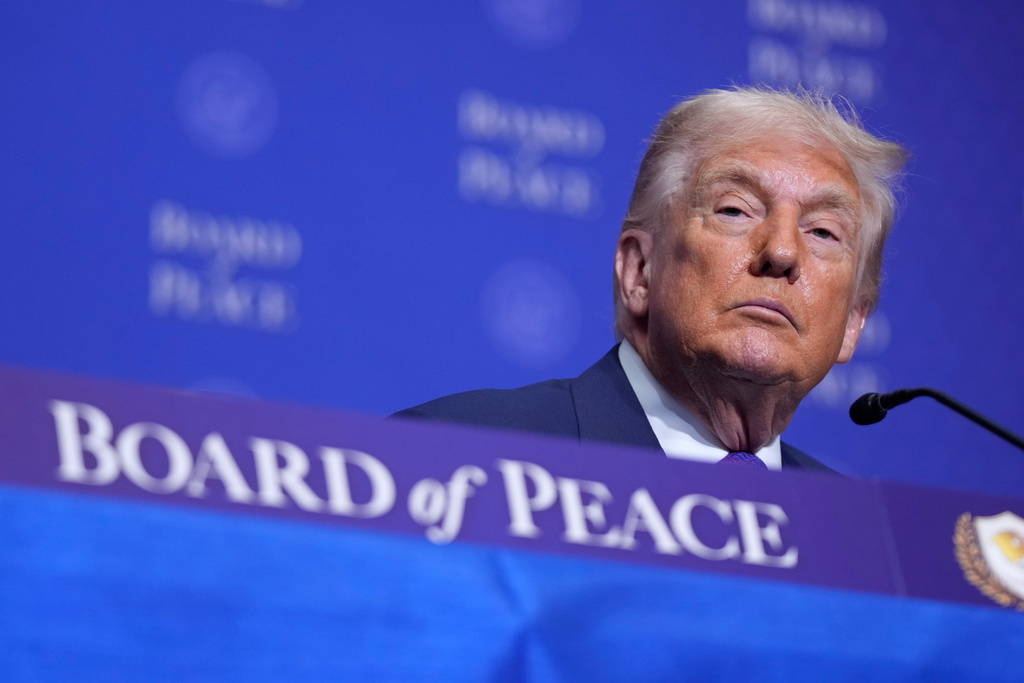A look at socialism through the eyes of recent commanders-in-chief
With Zohran Mamdani – a dues-paying member of the Democratic Socialists of America (DSA) – now favored to become New York City’s next mayor, socialism is moving from the fringes of U.S. politics into some of its most powerful offices.
The DSA platform calls for sweeping changes to America’s economic and political systems, from abolishing police departments to nationalizing major industries.
That makes it worth asking: how have America’s recent presidents viewed socialism? Here’s what each of them – from Jimmy Carter to Donald Trump – has had to say about it, in their own words.
Eight presidents. Six decades. One unifying message:
Donald Trump (2017-2021, 2025- present)
In a speech to the 73rd United Nations General Assembly in 2018, President Trump pulled no punches when warning his fellow world leaders about the perils of socialism:
“Virtually everywhere socialism or communism has been tried, it has produced suffering, corruption, and decay. Socialism’s thirst for power leads to expansion, incursion, and oppression. All nations of the world should resist socialism and the misery that it brings to everyone.”
Joe Biden (2021-2025)
Speaking with Germany’s Angele Merkel in 2021, President Biden offered a measured assessment of the shortcomings of socialism:
“Communism is a failed system, a universally failed system. And I don’t see socialism as a very useful substitute.”
On the campaign trail in 2020, Biden was defiant:
“I ain’t a socialist. I ain’t a plutocrat. I’m a Democrat, and I’m proud of it.”
Barack Obama (2009-2017)
In 2018, former President Obama gave the 16th annual Nelson Mandela Lecture in South Africa. He said that closing the gap between poorer and wealthier countries:
“won’t involve old-style command-and-control socialism from the top. That was tried; it didn’t work very well. For almost all countries, progress is going to depend on an inclusive market-based system.”
George W. Bush (2001-2009)
President Bush didn’t have much to say about socialism during his time in office, but he was an ardent defender of its rival system: free enterprise. This was his philosophy in addressing the 2008 financial crisis:
“The long-term solution to today’s problems is sustained economic growth, and the surest path to that growth is free markets and free people.”
Bill Clinton (1993-2001)
President Clinton also didn’t have much to say about socialism explicitly, but he was instrumental in moving the Democratic Party back to the middle. President Clinton embraced the Democratic Leadership Council and styled himself as a “New Democrat,” a stark contrast to the leftism that ruled the Party in previous decades.
Clinton’s pivot to the center worked. He defeated the incumbent president in a long-shot bid for the White House in 1992, ending 12 years of Republican rule. And he went on to be the first Democrat since Franklin D. Roosevelt to win re-election.
In his 1996 State of the Union address, President Clinton laid it out plainly:
“The era of big government is over.”
George H.W. Bush (1989-1993)
President Bush wasted no time staking out his economic philosophy. In his 1989 inaugural address, the newly-sworn in President declared:
“We know what works: freedom works. We know what’s right: freedom is right. We know how to secure a more just and prosperous life for man on Earth: through free markets, free speech, free elections, and the exercise of free will unhampered by the state.”
Ronald Reagan (1981-1989)
Socialism had no greater foe than Ronald Reagan. Before he ever held any political office, Reagan delivered the “A Time for Choosing” speech in 1964 in support of Republican presidential candidate Barry Goldwater, in which he extolled the virtues of limited government and free markets.
But President Reagan’s signature quip about socialism is this joke:
“Here in America… we’ve been creeping closer to socialism, a system that someone once said works only in heaven – where it isn’t needed; and in hell – where they’ve already got it.”
Jimmy Carter (1977-1981)
Inflation plagued the U.S. throughout the 1970s. In an October 1978 address to the nation, President Carter outlined his five-step plan to fight inflation – mostly relying on free market principles:
“We are going to hold down government spending, reduce the budget deficit, and eliminate government waste. We will slash Federal hiring and cut the Federal work force. We will eliminate needless regulations. We will bring more competition back to our economy. And we will oppose any further reduction in Federal income taxes until we have convincing prospects that inflation will be controlled.”
Related
Peyton Lofton
Peyton Lofton is Senior Policy Analyst at No Labels and has spent his career writing for the common sense majority. His work has appeared in the Washington Examiner, RealClearPolicy, and the South Florida Sun Sentinel. Peyton holds a degree in political science from Tulane University.




